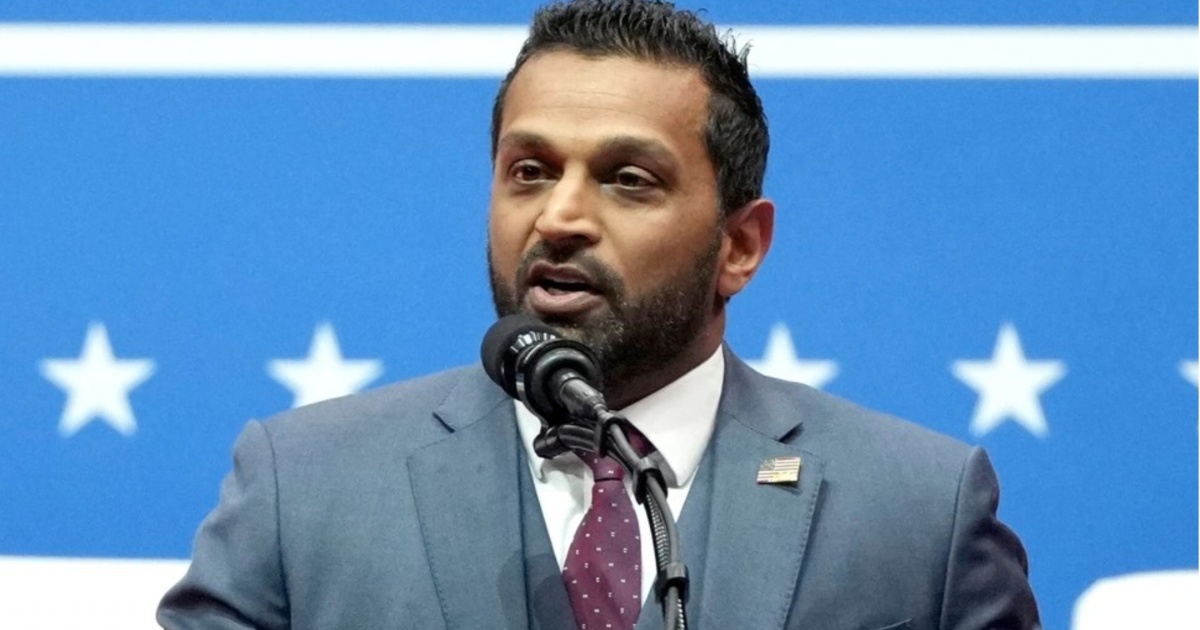Kash Patel’s decision to declassify a controversial annex in the Durham Report is intensifying scrutiny of the Department of Justice’s refusal to release the full Jeffrey Epstein files. According to national security analyst Marcy Wheeler, Patel’s action destroys the DOJ’s stated rationale for continued secrecy, potentially opening the door to long-blocked disclosures.
Less than a month ago, the DOJ justified its decision to withhold further Epstein-related records by claiming, “We did not uncover evidence that could predicate an investigation against uncharged third parties,” and warning that “perpetuating unfounded theories about Epstein serves neither justice nor transparency.”
The FBI echoed that message, stating it had “labored to provide the public with maximum information” but determined “no further disclosure would be appropriate or warranted.”
BREAKING: FBI Director Kash Patel’s girlfriend, Alex Wilkins, says she is not a ‘spy’ for any government and supports releasing the Epstein files if it will stop people from calling her one. pic.twitter.com/NOdjIgcb7r
— Leading Report (@LeadingReport) August 3, 2025
But Wheeler, who has extensively analyzed both the Durham investigation and the Epstein case, notes that Patel released the declassified Durham annex, a document under the same DOJ/FBI control, which openly named and implicated private citizens never charged with any crime, including current NATO Ambassador Julianne Smith.
The annex released by Patel included emails that Smith voluntarily turned over during the Durham probe. At the time of the events described, she was a Clinton campaign foreign policy advisor and worked at the Center for a New American Security. Russian intelligence reportedly hacked the same email accounts, and Durham used this overlap to push a conspiracy theory implicating Smith and others in an alleged plot to harm Donald Trump.
Wheeler emphasizes that Durham’s claims about Smith were not only unsupported by the evidence, but they were also based, in part, on Russian disinformation. Yet the DOJ permitted Patel to declassify and disseminate the annex anyway, fully identifying Smith, even though she was not charged and was framed by foreign actors.
We’re expanding global operations to confront some of the most serious threats to the American homeland: foreign influence, cyber attacks, CCP espionage, and counter narcotics.
Australia is a critical ally in that fight. Our team just returned from high-level meetings with our… pic.twitter.com/8nSZLAk5JT
— FBI Director Kash Patel (@FBIDirectorKash) August 3, 2025
Analysts, citing Wheeler’s reporting, argue this move undermines the DOJ’s rationale for redacting Epstein records to protect uncharged individuals. If Patel could expose Smith, framed by Russian intelligence, in the name of “public interest,” the same logic should allow for disclosure of who was involved with Epstein, particularly individuals wielding public or political influence.
Wheeler further details how Durham ignored evidence contradicting his theory. Smith had reached out to Obama-era officials, including Lisa Monaco, to ask whether the FBI was investigating the Russian hacks. Durham cited those efforts, her seeking answers as a victim, as evidence of a supposed Clinton-backed conspiracy.
Adding to the controversy, the “intelligence” underpinning Durham’s theory was traced back to fabrications by Russia’s SVR. Yet Patel proceeded with naming Smith, diverging sharply from the protective approach DOJ Inspector General Michael Horowitz used when handling similar Clinton-related material.
Wheeler argues that Patel’s move, and the DOJ’s tolerance of it, sets a precedent. The idea that releasing Epstein-related files would harm innocent third parties no longer holds up, she contends, especially when applied inconsistently.
At the heart of the renewed push for transparency is a simple question: if someone framed by Russian spies can be named in official documents released by the DOJ and FBI, why not reveal the full extent of Epstein’s connections, especially when Epstein himself confessed to recruiting underage girls from places like Trump’s Mar-a-Lago spa?
The DOJ has not responded to whether Patel’s actions will lead to a reassessment. But as Wheeler’s reporting makes clear, the precedent has shifted, and the Epstein files may not remain sealed forever.









